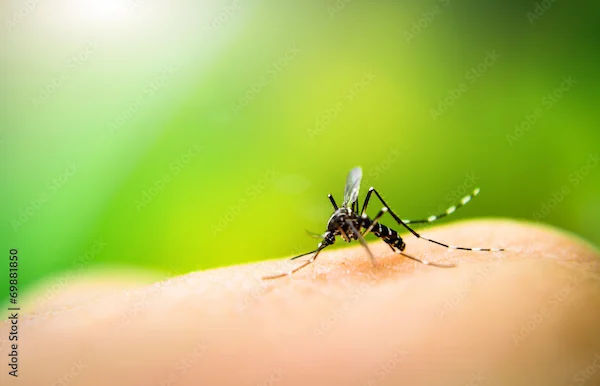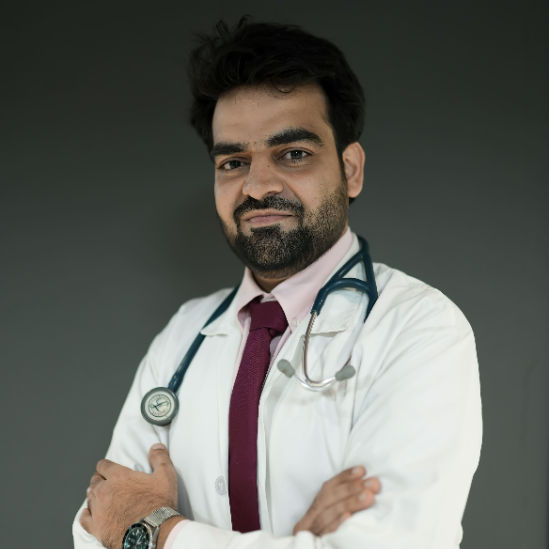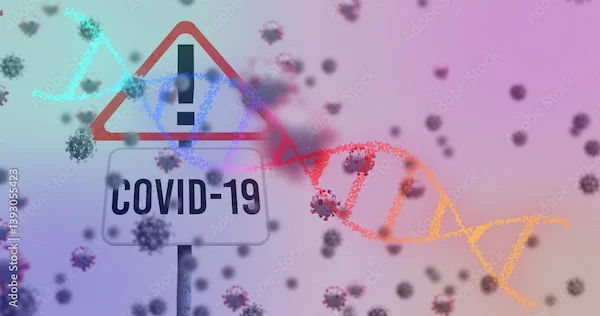Types of Malaria and Their Causes
Learn about the different types of malaria—Plasmodium falciparum, vivax, ovale, malariae, and knowlesi. Understand their causes, transmission, and key differences.

Written by Dr.Sonia Bhatt
Last updated on 21st Jul, 2025

Malaria is a serious and sometimes life-threatening disease caused by parasites that are transmitted to humans through the bite of infected female Anopheles mosquitoes. While malaria is preventable and treatable, it remains a significant health concern in many parts of the world, especially in tropical and subtropical regions.
In this article, we will explore the different types of malaria, their causes, symptoms, and how you can protect yourself from this disease.
What Are the Different Types of Malaria?
Malaria is caused by five species of Plasmodium parasites, each leading to different forms of the disease:
1. Plasmodium falciparum: The most dangerous and deadly type, responsible for most malaria-related deaths worldwide. It multiplies rapidly in the blood, leading to severe complications like organ failure.
2. Plasmodium vivax: The most widespread type, commonly found in Asia and Latin America. It can remain dormant in the liver and cause relapses months or even years after the initial infection.
3. Plasmodium ovale: Similar to P. vivax, this type can also stay inactive in the liver and cause relapses, though it is less common.
4. Plasmodium malariae: Causes a milder form of malaria but can persist in the blood for years if untreated.
5. Plasmodium knowlesi: A rare type found in Southeast Asia, primarily affecting monkeys but can also infect humans, leading to severe illness.
Each type has different characteristics, but they all share common symptoms and require prompt medical attention.
What Causes Malaria?
Malaria is not contagious—meaning it doesn’t spread from person to person like a cold or flu. Instead, it is transmitted in the following ways:
1. Mosquito Bites
The primary cause of malaria is the bite of an infected female Anopheles mosquito. When the mosquito bites a person, it injects the Plasmodium parasites into the bloodstream.
2. Blood Transfusion or Organ Transplant
In rare cases, malaria can spread through infected blood transfusions, organ transplants, or shared needles.
3. Mother to Baby (Congenital Malaria)
An infected mother can pass malaria to her baby during pregnancy or childbirth.
Common Symptoms of Malaria
Symptoms usually appear 10–15 days after being bitten by an infected mosquito and may include:
High fever with chills and sweating
Severe headache
Muscle and joint pain
Fatigue and weakness
Nausea and vomiting
Diarrhea
In severe cases (especially with P. falciparum), symptoms can worsen rapidly, leading to:
Confusion or seizures
Difficulty breathing
Jaundice (yellowing of skin and eyes)
Kidney failure
If you experience these symptoms, seek medical help immediately.
Get Your Symptoms Checked By Top Specialists
How Is Malaria Diagnosed?
Doctors diagnose malaria through:
Blood tests: To detect the presence of malaria parasites.
Rapid diagnostic tests (RDTs): Quick tests that provide results within minutes.
If you suspect malaria, book a blood test through Apollo 24|7 for fast and accurate results.
How Can You Prevent Malaria?
Prevention is the best way to stay safe from malaria. Here are some effective strategies:
1. Avoid Mosquito Bites
Use mosquito nets (preferably insecticide-treated).
Apply mosquito repellent (containing DEET, picaridin, or oil of lemon eucalyptus).
Wear long-sleeved clothing in mosquito-prone areas.
Use window screens and indoor insecticide sprays.
2. Take Antimalarial Medications (If Travelling to High-Risk Areas)
If you’re visiting a malaria-endemic region, consult a doctor for preventive antimalarial drugs.
3. Eliminate Mosquito Breeding Sites
Remove stagnant water (where mosquitoes breed) from flower pots, coolers, and gutters.
Use larvicides in water bodies if necessary.
Treatment Options for Malaria
Malaria is treatable with antimalarial medications, depending on the type of parasite and severity of the infection. Common treatments include:
Chloroquine (for P. vivax and P. ovale in some regions).
Artemisinin-based combination therapies (ACTs) (for P. falciparum).
Primaquine (to prevent relapses in P. vivax and P. ovale infections).
Never self-medicate—always consult a doctor for the right treatment.
When to See a Doctor?
Seek immediate medical attention if:
You have travelled to a malaria-prone area and develop fever.
Symptoms worsen despite home care.
You experience severe headaches, confusion, or difficulty breathing.
If you need expert advice, consult a doctor on Apollo 24|7 for prompt diagnosis and treatment.
Conclusion
Malaria is a serious but preventable disease. By understanding the types of malaria, their causes, and taking preventive measures, you can significantly reduce your risk. If you experience symptoms, early diagnosis and treatment are crucial for a full recovery.
Stay safe, stay informed, and take the necessary precautions to protect yourself and your loved ones from malaria.
Consult Top Specialists
Get Your Symptoms Checked By Top Specialists

Dr. D Bhanu Prakash
General Practitioner
10 Years • MBBS, AFIH, Advanced certificate in critical care medicine, Fellowship in critical care medicine
Hyderabad
Apollo 24|7 Clinic, Hyderabad

Dr. Praveen Kumar Mukka
General Physician/ Internal Medicine Specialist
21 Years • MBBS, MD General Medicine
Hyderabad
Apollo 24|7 Clinic - Telangana, Hyderabad

Dr. Hrishikesh Shivakumar
General Physician/ Internal Medicine Specialist
9 Years • MBBS, MD
Bangalore
Apollo 24|7 Clinic - Karnataka, Bangalore

Dr. Md Yusuf Shareef
General Practitioner
8 Years • MBBS
Hyderabad
Apollo 24|7 Clinic, Hyderabad

Dr. Immanuel Raj
General Practitioner
8 Years • MBBS. MBA (HHSM)
Visakhapatnam
Apollo 24|7 Clinic - Andhra Pradesh, Visakhapatnam
Consult Top Specialists

Dr. D Bhanu Prakash
General Practitioner
10 Years • MBBS, AFIH, Advanced certificate in critical care medicine, Fellowship in critical care medicine
Hyderabad
Apollo 24|7 Clinic, Hyderabad

Dr. Praveen Kumar Mukka
General Physician/ Internal Medicine Specialist
21 Years • MBBS, MD General Medicine
Hyderabad
Apollo 24|7 Clinic - Telangana, Hyderabad

Dr. Hrishikesh Shivakumar
General Physician/ Internal Medicine Specialist
9 Years • MBBS, MD
Bangalore
Apollo 24|7 Clinic - Karnataka, Bangalore

Dr. Md Yusuf Shareef
General Practitioner
8 Years • MBBS
Hyderabad
Apollo 24|7 Clinic, Hyderabad

Dr. Immanuel Raj
General Practitioner
8 Years • MBBS. MBA (HHSM)
Visakhapatnam
Apollo 24|7 Clinic - Andhra Pradesh, Visakhapatnam




